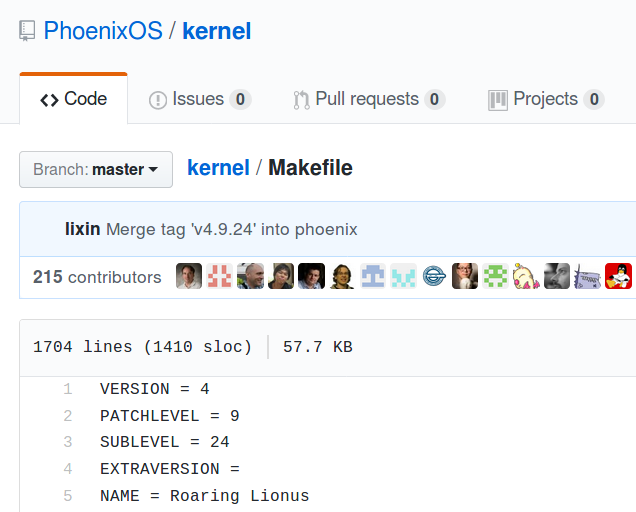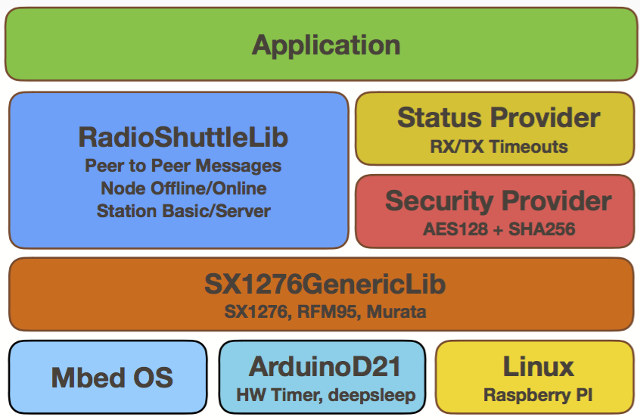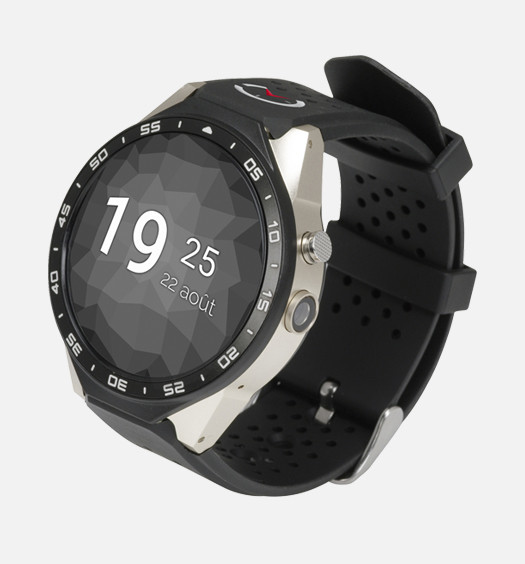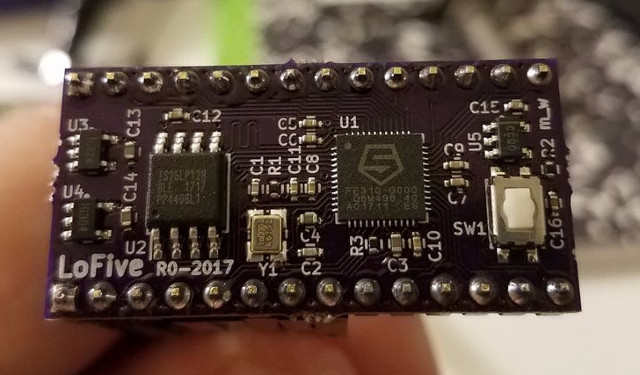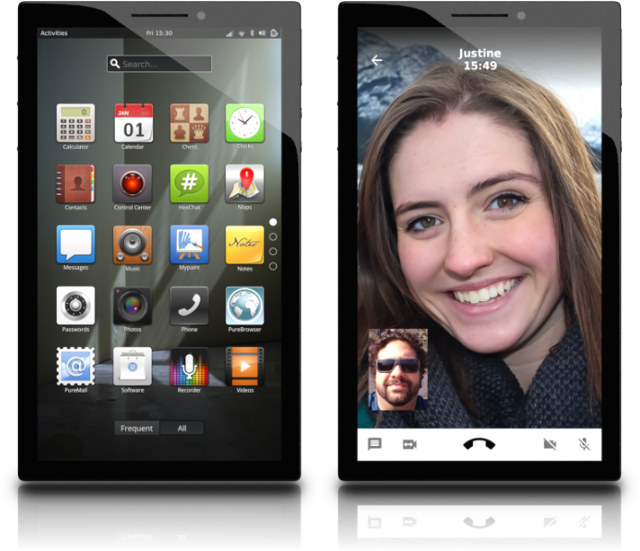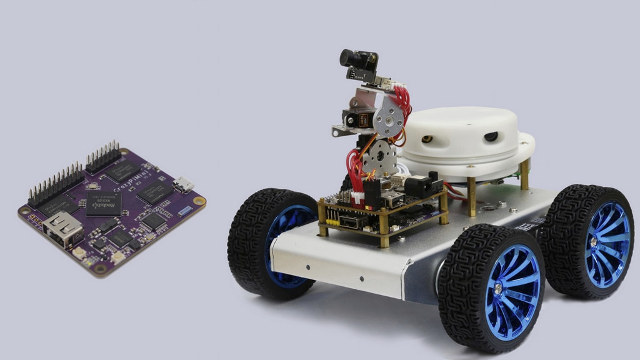Phoenix OS is one of the last options left for people wanting to run Android with desktop optimizations on their computer. The problem is that so far, it was fully closed source, and the company refused to comply with the Linux kernel’s GPLv2 license, despite part of the project being based on Android-x86 work. The community also wanted to get involved to improve hardware compatibility with graphics cards, wireless modules / dongles, and other peripherals. However, without source code, nothing could be done, and a petition was launched on Change.org asking Chaozhuo, the company behind the project, to release the Linux kernel code. After over 300 signatures was reached in the petition, the company did push Linux 4.9.24 to Github, and after verifying there was indeed some changes compared to Android x86 kernel, the community declared victory. They are however trying to make the company develop the kernel in the […]
RadioShuttle Network Protocol is an Efficient, Fast & Secure Alternative to LoRaWAN Protocol
LoRaWAN protocol is one of the most popular LPWAN standards used for the Internet of Things today, but some people found it “lacked efficiency, did not support direct node-to-node communication, and was too costly and far too complicated for many applications”, so they developed their own LoRa wireless protocol software called RadioShuttle, which they claim is “capable of efficiently sending messages in a fast and secure way between simple LoRa modules”. Some of the key features of the protocol include: Support for secure or insecure (less time/energy) message transmission, multiple messages transmission in parallel Unique 32-bit device ID (device number) per LoRa member, unique 16-bit app ID (program number for the communication) Security – Login with SHA-256 encrypt password; AES-128 message encryption Air Traffic Control – Nodes only send if no LoRa signal is active on that channel. Optimized protocol – Message delivery within 110 ms (SF7, 125 kHz, free […]
Connect Watch Runs AsteroidOS Open Source Operating System (Crowdfunding)
At the beginning of last year, we discovered AsteroidOS (hobby) project aiming to provide a Linux based open source operating system working on some Android Wear smartwatches. At the time the OS relied on Android drivers working with libhybris, Qt5/QML for apps, and only supported LG G Watch. Since then, Florent Revest has continued development, with more watches being supported from Samsung, Asus, and other brands, and a French startup has decided to design and bring to market Connect Watch running AsteroidOS. Connect Watch specifications: SoC- Mediatek quad core processeur @ up to 1.39GHz MTK System Memory – 512MB or 1GB RAM Storage – 4 or 8GB flash Display – 1.39″ round Amoled display with 400×400 resolution Audio – Built-in speaker Connectivity Bluetooth Optional GSM ( 850/900/1800/1900MHz) and 3G WCDMA (850/2100MHz) support with nano SIM card slot GPS Camera – 2.0 MP; records to 720p Sensors – Heart rate monitor […]
LoFive is a Tiny Open Source Hardware Board based on SiFive FE310 RISC-V Open SoC
Do you remember HiFive1? It’s an Arduino compatible board based on the SiFive FE310 open source RISC-V SoC. Michael Welling has now started working on LoFive board using the same processor, but in a much smaller & breadboard friendly form factor. LoFive board specifications: MCU – SiFive Freedom E310 (FE310) 32-bit RV32IMAC processor @ up to 320+ MHz (1.61 DMIPS/MHz) Storage – 128-Mbit SPI flash (ISSI IS25LP128) Expansion – 2x 14-pin headers with JTAG, GPIO, PWM, SPI, UART, 5V, 3.3V and GND Misc – 1x reset button, 16 MHz crystal Power Supply – 5V via pin 1 on header; Operating Voltage: 3.3 V and 1.8 V Dimensions – 38 x 18 mm (estimated) The board will be programmable with Arduino IDE + Cinco just like HiFive1 board. The board is also open source hardware, so beside the aforelinked info on Hackster,io, you’ll also find the KiCAD schematics, PCB layout, and […]
Embedded Linux Conference & Open Source Summit Europe 2017 Schedule
The Embedded Linux Conference & IoT summit 2017 took place in the US earlier this year in February, but there will soon be a similar event with the Embedded Linux Conference *& Open Source Summit Europe 2017 to take up in Europe on October 23 – 25 in Prague, Czech Republic, and the Linux Foundation has just published the schedule. It’s always useful to find out what is being discussed during such events, even if you are not going to attend, so I went through the different sessions, and compose my own virtual schedule with some of the ones I find the most interesting. Monday, October 23 11:15 – 11:55 – An Introduction to SPI-NOR Subsystem – Vignesh Raghavendra, Texas Instruments India Modern day embedded systems have dedicated SPI controllers to support NOR flashes. They have many hardware level features to increase the ease and efficiency of accessing SPI NOR […]
Purism Librem 5 Open Source Linux Smartphone Focuses on Privacy (Crowdfunding)
Purism is computer manufacturer founded in 2014 whose mission is to “provide the highest quality hardware available, ensuring the rights of security, privacy, and freedom for all users”, and so far, they’ve delivered several Intel Core i5/i7 laptops running their PureOS Linux distribution based on Debian with an emphasis on privacy protection. The company has now launched a crowdfunding campaign on their own website to develop and manufacture Librem 5 Linux smartphone with the same philosophy. The phone will use open source software even for the GPU, so the company currently selected i.MX6 for the project since they can use etnaviv open source driver for the Vivante GPU, but they hope to switch to the more powerful i.MX8 processor for the final design, which explains why the hardware specifications are not set in stones yet: SoC- NXP i.MX6/i.MX8 CPU with Vivante GPU System Memory – 3GB LPDDR3 Storage – 32GB […]
Android 8.0 Oreo Launched, OS Images, and AOSP Source Code Released
Google has now formally announced Android O version and name: Android 8.0 Oreo. We already had seen the new Features in Android O-reo during the first preview release with picture-in-picture support, autofill APIs, adaptive icons and so on. There’s also a new Android Oreo character… If you want to run the latest Android 8.0 on your device, you can do so on Nexus 5X, Nexus 6P, Nexus Player, Pixel C, Pixel, and Pixel XL by getting the firmware in the download page, unless you are enrolled in Android Beta Program in which case you should receive it automatically. What I did not see (yet) is a joint announcement for a new Android 8.0 phone like last year LG V20 smartphone with Android 7.0, and Google simply said that “by the end of this year, hardware makers including Essential, General Mobile, HMD Global Home of Nokia Phones, Huawei, HTC, Kyocera, LG, […]
CrazyPi Board Runs Ubuntu and ROS on Rockchip RK3128 SoC for Robotics & IoT Projects (Crowdfunding)
CrazyPi is a maker board powered by Rockchip RK3128 quad core Cortex A7 processor that can take various magnetically connected modules such as LIDAR, gimbal, 4G LTE, etc.., and runs both Ubuntu and ROS (Robot Operating System) for DIY robotics & IoT projects. CrazyPi main board specifications: SoC – Rockchip RK3128 quad core Cortex A7 processor @ 1.2 GHz with ARM Mali GPU MCU – ARM Cortex-M3 @ 72 MHz System Memory – 1GB DDR3L @ 1066 MHz Storage – 16GB eMMC flash pre-loaded with Ubuntu and ROS Connectivity – 802.11 a/b/g/n WiFi @ 150 Mbps, Bluetooth 4.0 USB – 1x USB 2.0 host port Expansion Headers – Two headers with a total of 36-pin exposing 1x HDMI, 1x speaker, 1x microphone, 3x PWM, 1x I2C, 1x UART, 1x SPDIF, 1x SPI, 1x USB Power Supply – 5V via micro USB port ? Dimensions – Smaller than credit card The […]


